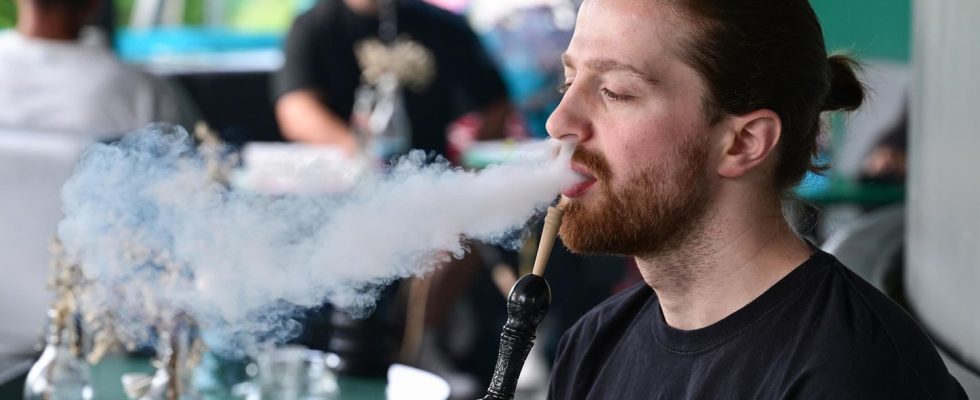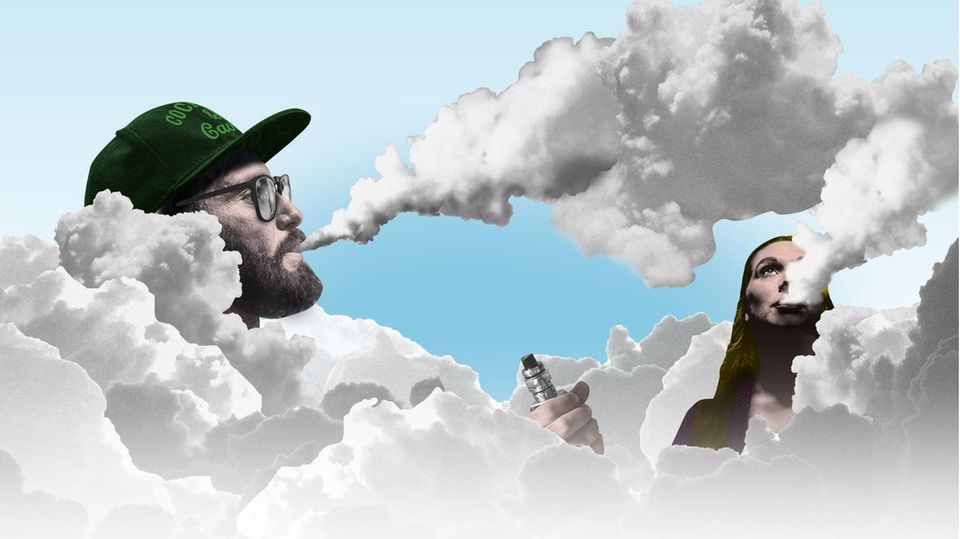New packaging limit
Shisha bars: The water pipe industry fears a wave of bankruptcies
Tax revenue is falling off: Due to changes in packaging regulations, more and more consumers are smoking illegal shisha tobacco
© dpa | Bernd Weißbrod / Picture Alliance
The shisha industry is threatened with a wave of bankruptcies. Demand is falling due to strict packaging rules. Consumers are increasingly buying black market products.
Shisha bars are now part of the street scene in almost every German city. But the sweet clouds of smoke could soon dissipate: German shisha bars as well as manufacturers and retailers are threatened with a wave of bankruptcies. The Federal Waterpipe Tobacco Association warns against this. Sales figures for water pipe tobacco have already plummeted in retail. “We are already recording numerous bankruptcies here,” said the managing director of the industry association Folke Rega when asked by Capital. The main reasons are additional taxes and a packaging regulation that came into force in mid-2022.
Since then, tobacco for hookahs can only be sold in individual can packages containing 25 grams of tobacco each, instead of in large containers. According to estimates by the industry association, the price for consumers has doubled within two years. While they used to pay 80 to 100 euros per kilo of shisha tobacco, the price per kilo is now 160 to 170 euros.
The purchase price for shisha bars has even quadrupled, reports the Federal Water Pipe Tobacco Association. “Many operators are also afraid to pass the costs on to consumers,” says Folke Rega. “The bars that have already increased the price are struggling with significant declines in sales.” However, only 25 percent of consumption takes place there.
Collapse of tax revenues
According to the Federal Statistical Office, net sales of hookah tobacco for the entire year of 2023 were 727.7 tons. In the first half of 2023, 304 tons were taxed. Until the end of June, retailers and manufacturers were still allowed to sell their remaining stocks of shisha tobacco in larger packaging. Packs with a capacity of 200 grams were common. In the second half of the year, in which only small 25 gram individual packs were allowed to be sold, sales volume was 424 tons. In the previous year 2022, tax stamps were issued for 893 tonnes of water pipe tobacco net, i.e. after deduction of refunds.
A comparison with the figures from 2021, when the amount taxed in Germany was still 6,914 tonnes, shows how bad the water pipe industry actually is. According to the Federal Water Pipe Tobacco Association, the federal government generated tax revenue of between 290 and 320 million euros plus sales tax. At that time, water pipe tobacco was still part of the pipe tobacco category for tax purposes.
It was not until 2022 that shisha tobacco received its own category in tax law when the federal government introduced an additional tax. This was initially 15 euros per kilogram and has been 19 euros per kilo since 2023. As sales fell, tax revenue also collapsed: According to the Federal Statistical Office, the federal government achieved just 41 million euros from the tax on hookah tobacco in 2023, and in 2022 revenue was only 42 million euros. The legislature had actually expected a significant increase in revenue, as small portions incur proportionately more tobacco taxes than large tobacco tins.
Black market is flourishing
However, the tax on hookah tobacco and the packaging regulations have not depressed consumption: According to information from the industry association, sales figures for hookah charcoal remain stable. Since the coal can only be used for water pipes, consumers seem to continue puffing, albeit with illegal tobacco. Customers are turning to illegal products to save money. The Federal Water Pipe Tobacco Association estimates that black market tobacco now accounts for around 80 percent of the German market. Even operators of shisha bars would turn to the illegal market “in order to continue to exist,” says association manager Rega to Capital.
The illegal production of water pipe tobacco for the black market has become “particularly lucrative” in recent months, Rega continued. While the manufacturing costs remained low, the selling price also increased on the black market. Black market players can make high profit margins. Customers also buy health risks with illegal products. These may contain contaminated ingredients and may be produced under unhygienic conditions.
Federal association calls for quantitative limits to be withdrawn
Regarding Capital, Rega says that the state has “lost control over a once functioning market” and is “completely irresponsibly exposing consumers to the dangers of illegally manufactured and adulterated products without being able to monitor them.” The illegal trade advertises its products via social networks. But black market dealers are also present in stationary locations, for example in shisha shops and kiosks. The sellers often stored illegal tobacco outside the shops and then conducted their business in private homes or on the street out of the trunk of a car.
As a countermeasure, the association is calling on the federal government to immediately lift the quantity limit and abolish additional taxation: “Destroying legal structures and replacing them with illegal ones cannot be in the spirit of a responsible federal government.”
This article appeared first in the business magazine “Capital”which, like stern, is part of RTL Deutschland.




